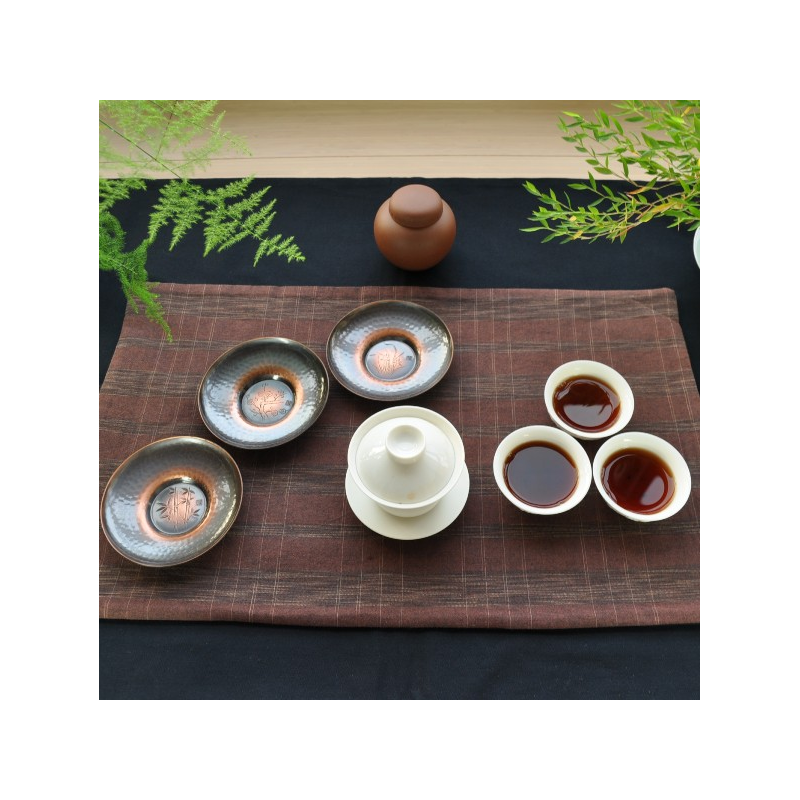Shape: Jingua Gongcha / Melon tribute tea
Made at the end of the 1980s
Origin: Menghai Tea Factory, Yunnan, China
Process: shu (wodui) aka cooked.
Weight: due to aging loss, each mellon weighs approximately 450 gr (instead of the standard 500 gr)
It was purchased by a Taiwanese puerh merchant some 25 years ago, when it was still illegal to import Chinese products. That's why the wrapper is blank. It was stored in Taiwan in a puerh warehouse. The storage must have been very clean, because there are no water or tea stains on the paper. (And the paper looks yellow and aged as well). More importantly, the compression appears to have well loosened with time. It's an easy to flake melon.
1. View
The color of the leaves inside and outside is very close and doesn't appear to be grey/white. There are lots of buds and small leaves in this puerh. The melon has just come out of the warehouse, so that there are still some warehouse smells; if the tea is aired for a while, it will improve in terms of purity. (On the other hand, some drinkers like these concentrated warehouse puerh smells...) To me, this tea feels so clean that I don't even rinse it! The first 6 minutes test brew is deep dark brown and surprisingly clear, even though its surface looks a little bit like jelly.
2. Scents
The scents are complex and refined from time. There's camphor, earth, wood, autumn leaves...
3. Taste
The taste is concentrated but feels light, sweet and has even a light freshness and a lot of purity. In the 1980s, the wodui process at Menghai produced lots of sweetness, but at that time they didn't overcook the leaves. The taste doesn't feel flat, but is still nicely alive. That's the reason why this kind of tea can sometimes fool drinkers into thinking that it's 50-80 years old sheng! So, beside the pleasure of drinking such a top quality wodui puerh, it's also an important taste to know if you are looking for older sheng and don't want to be fooled by an old shu. The aftertaste is very long, clean and nicely sweet. A great shu puerh that can be enjoyed a 2 or 3 grams at a time! See the Chaxi for this tea here.








